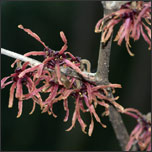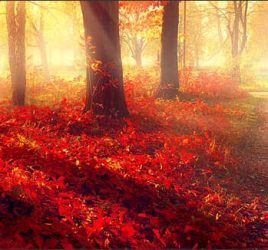How to Grow Witch Hazel In Sandy Soil

Do you love how witch hazel can add color to your landscape this autumn?
Do you have sandy soil that prevents you from growing the trees and shrubs you love?
Happy Halloween! On this Halloween, we are going to be sharing about growing the spooky shrub witch hazel in any type of soil. In light of the most recent hurricane, we are going to focus our attention on sandy soil.
Witch hazel comes in a wonderful range of color. Colors like:
- Red
- Orange
- Gold
This shrub is a fall must have. It grows well in almost every environment, but it grows best in zones 3-9. If you do not know what a zone is or what zone you live in, check out our article How to Understand Gardening Zones.
A Few Facts About Witch Hazel
- It can grow to heights of 12 feet tall and 12 feet wide.
- Witch hazel blooms in the winter, fall and spring.
- This shrub is great for planting in bed and borders. It can also offer some privacy for your lawn.
- Plant this shrub where it can get full sun with some light shade.
Soil
According to The Better Homes and Gardens Plant Encyclopedia, while witch hazel prefers soil that is moist and well drained full of organic matter, try as we may, we cannot always achieve that. However, you can help your shrub grow in the worst of soil even sandy soil.
The best way to ensure that your plant grows strong and tall is to help its roots grow deep into the ground, past any difficult soil. The deeper your roots grow the better chance your perfect fall shrub has at surviving and flourishing.
The Root Stick
This product has been engineered with your plant and soil in mind and has been scientifically proven to strengthen your plants, shrubs and trees. It does this by proving nutrients, water and the oxygen your shrubs roots need. Instead of the roots growing out and closer to the surface of the ground; the Root Stick encourages the roots to grow deep into the ground, strengthening the shrub.
What kind of soil do you have? Do you have a hard time growing plants and trees because of it? We would love to hear all about it.

